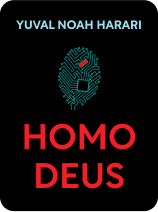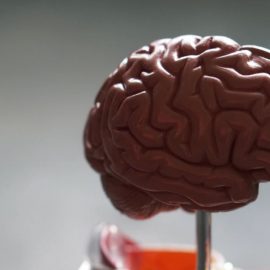

This article is an excerpt from the Shortform book guide to "Homo Deus" by Yuval Noah Harari. Shortform has the world's best summaries and analyses of books you should be reading.
Like this article? Sign up for a free trial here .
Is immortality possible? Do you think eradicating death is a feasible medical goal or a hopeless pipe dream?
Historically, people embraced death as a part of the deal because immortality was not even conceived as a possibility. However, as medical advances continue, scientists suggest that immortality is likely possible.
Keep reading for the answer to the question: is immortality possible?
Is Immortality Possible?
Historically, people have accepted death as an eventuality. Religions such as Christianity and Islam alleviate the fear of death by creating grand depictions of the afterlife offered to those who obey religious standards. Because of these depictions of an afterlife, people haven’t historically focused on preventing death.
However, modern science suggests that mortality could eventually be avoidable. Rather than accepting it as inevitable, scientists and doctors believe we can circumvent fatal issues such as disease, war, and natural disasters. This belief drives medical research and scientific exploration. For example, we don’t simply accept that cancer will always lead to death. Instead, we invest millions of dollars and countless hours in developing a cure.
As medical advances continue, people have begun to talk about the possibility of eventual immortality with many large corporations investing in the concept. For example, as of 2015, Google was investing 36% of its $2 billion Google Ventures portfolio in “life sciences.”
Of course, eradicating death is a far-off goal. While steps are being taken to discover the secret to immortality, most life science organizations currently focus on expanding life expectancy. For reference, in 1900, average life expectancy was 40; by 2000, it was 70. Using that trend as a guide, some believe that, as early as 2050, people will live twice as long as today.
If we’re able to double our life expectancy in the 21st century, people’s lifestyles will change drastically. Assuming a future life expectancy of 150 years, consider the following:
- Life-long partnerships would come into question as the commitment period could more than double. For example, today, a person getting married at the age of 40 would be with their partner for about 40 years assuming they don’t get divorced. If life expectancy were to double, that person would now be expected to be with their significant other for 110 years.
- The retirement age would be pushed back. For example, today, the average age of retirement is 65. If life expectancy were to double, the retirement age would likely be closer to 100. This would mean that the younger generations would have to wait longer to introduce new ideas and concepts to the workforce.
- Politicians would be in power for longer. For reference, if life expectancy had been doubled already, Stalin likely would’ve still been in power in 2016. If politicians have the ability to hold office for longer periods, the rate of change in politics would drastically slow as newcomers would have a harder time replacing long-term incumbents.
Is this a realistic vision of the near future? Probably not. While general life expectancy doubled in the 20th century, people lived into their 80s or 90s long before then. Longer lifespans simply became more common because humanity began to solve the problems of plague, famine, and war. With this in mind, modern medicine hasn’t extended life. It’s simply prevented premature death.
Regardless, the fight against death will continue to be central in the future of humanity. If people find the secret to immortality, they’ll tap into a lucrative market with infinite demand. The power of immortality would spark socio-political wars and could lead to a class divide unlike anything the world has ever known, separating an immortal elite from the rest of society.
Humanity’s quest for immortality leads to its ultimate goal: divinity. In this context, divinity isn’t a metaphysical existence with unlimited power such as the God of the Bible. Instead, it’s closer to the Greek gods or Hindu devas—flawed but powerful beings who have emotions and limitations.
We’re already accomplishing feats once considered to be “acts of God.” For example, ancient civilizations once considered a healthy harvest to be a “gift from above.” In contrast, modern humans rely on science and technology to create favorable harvest conditions, even when the natural environment is harsh.
In the quest for divinity, humans will likely “upgrade” along the following paths:
- Biological: Biological manipulation will likely be the first step toward “god-like” status. If scientists can discover the biology behind happiness and immortality, they’ll likely be able to manipulate almost anything within the human body through genetic alterations. This means that, for the right price, anyone could become a god-like being with immense strength, intelligence, or sensuality. Today, people are already experiencing the early stages of this development through hormonal manipulation and DNA coding.
- Cybernetic: Cybernetic augmentation will likely follow biological manipulation. Cybernetic augmentation is the combining of organic and inorganic materials in the human body. This would allow people to remove parts of the body that are threatened by decay and replace them with more durable material. It would also allow people to interact with technology around the world with just their thoughts. While this may sound like something out of Star Trek, people have already begun to combine inorganic materials with their bodies. In the medical field, cybernetic limbs and hearts are used to sustain life. In the technological field, “mind-reading” helmets allow people to control devices with their thoughts.
- Inorganic: Inorganic assimilation may follow cybernetic augmentation. Taking cybernetic augmentation one step further, inorganic assimilation is the process of moving one’s consciousness into an inorganic body. Neural networks would be replaced with hardware, and people could live in both the physical and virtual worlds at the same time. For example, if a human mind could be transferred to an inorganic body, the newly formed being could hypothetically explore the internet, see out of connected cameras, and move their new form using the electrical impulses generated from the brain. This would allow humanity to abandon its organic form and become practically immortal. Space exploration and recolonization would become a more realistic concept as inorganic material can survive harsher environments than flesh and bone.
While advancements are typically first created in the name of health, they’re often later used for modification purposes. For example, plastic surgery was first developed to treat wounded soldiers in WWI. However, after the war, healthy people wanted to use it to modify the features of their body that they viewed as “imperfect.”
In the near future, medical advances will likely continue to lead to modification. Some of the resources used today for unhealthy or wounded individuals may have benefits for the average person. For example, bionic legs currently allow amputees to walk, but they could be used in the future to enhance the speed of a non-amputee.
Further in the future, genetic manipulation is likely going to take the same route. For example, today, doctors use DNA testing and in vitro fertilization to help couples become pregnant with a low-risk child. The next step of this development is DNA replacement, which is already being done through the use of three-parent embryos (a third party provides their DNA to replace defective mitochondrial DNA). In the future, scientists will likely be able to directly modify all pieces of DNA in a lab, creating genetically “perfect” or even “enhanced” babies.

———End of Preview———
Like what you just read? Read the rest of the world's best book summary and analysis of Yuval Noah Harari's "Homo Deus" at Shortform .
Here's what you'll find in our full Homo Deus summary :
- Why technology is replacing humanist ideals
- How previous generations relied on prayer to deal with serious problems
- How AI and algorithms are going to run the world






